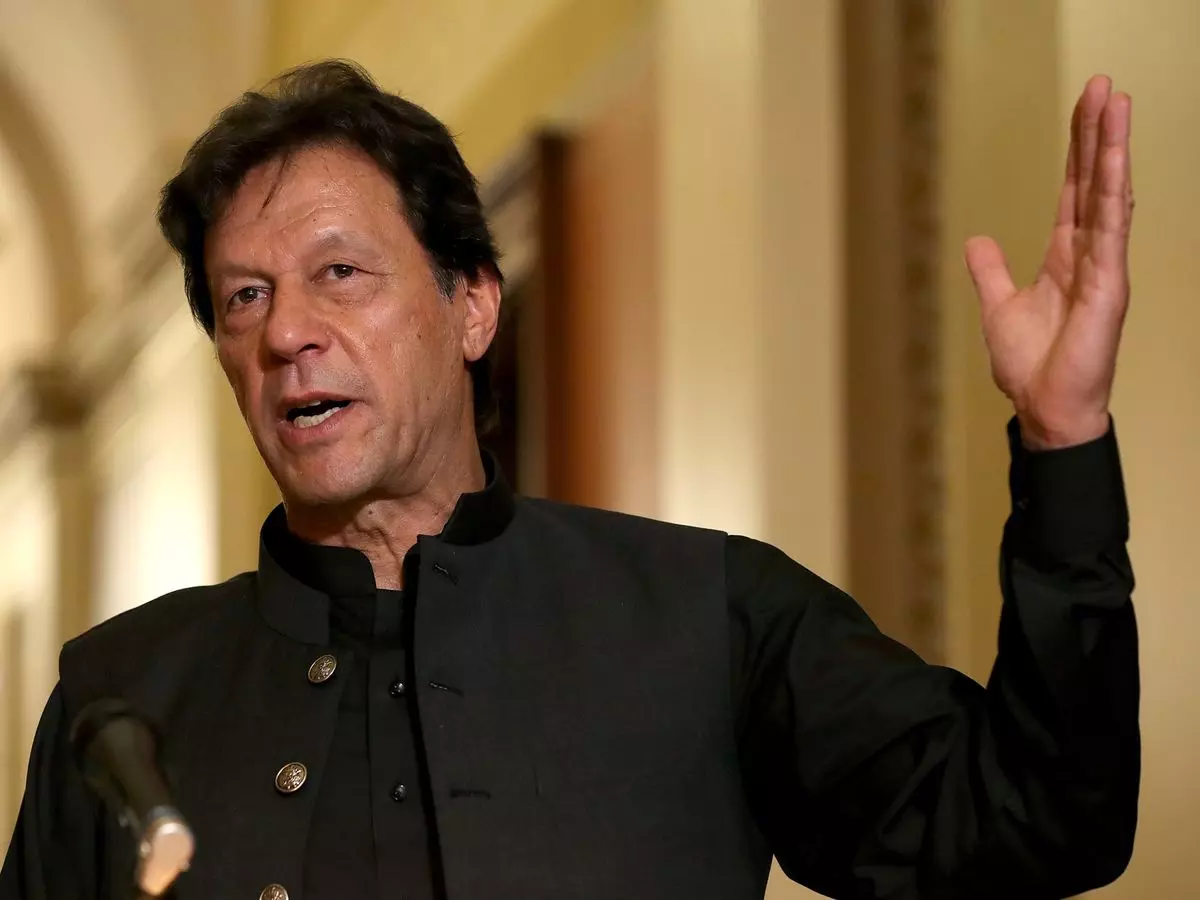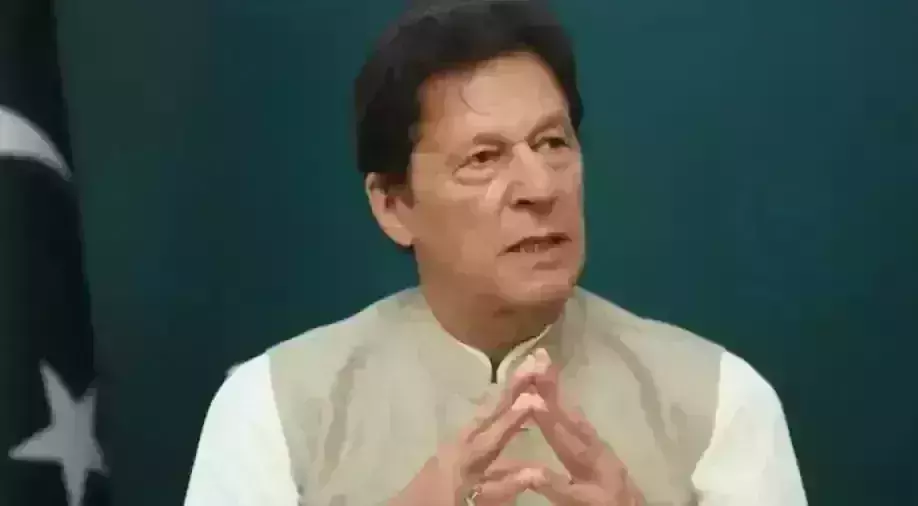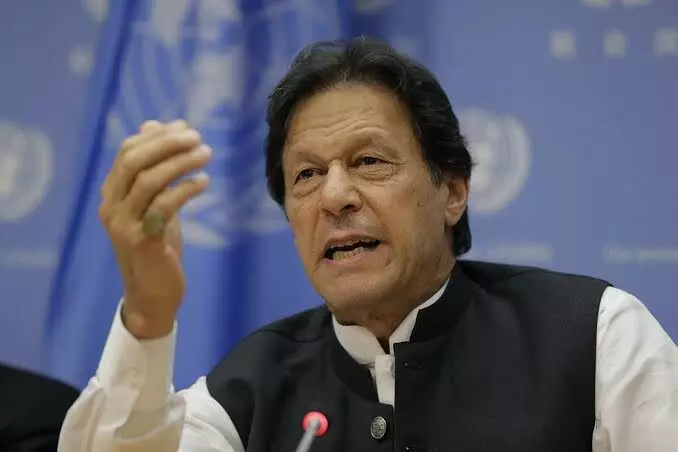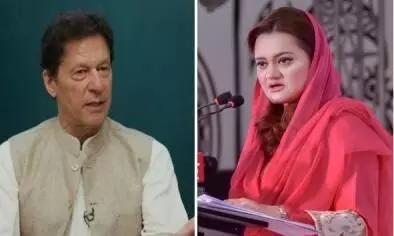
Political stalemate in Pakistan
text_fieldsNever since its formation through partition of the sub-continent has a ruler in Pakistan enjoyed a quiet term. Regardless of which party or alliance ruled, the norm seems to have been a maximum of three years for a prime minister. The more common form of a change of government the country is accustomed to is through a military coup, making parliament and constitution mute spectators. Two of them relinquished power after being caught in court cases. The current prime minister Imran Khan is being led to the exit door through a no-trust motion. The Opposition which served a notice for no-confidence, should as per rules, be given an opportunity to move it by Friday. Although the Speaker has convened a session of the National Assembly (NA), there is no certainty when the motion will be taken up. Trying to defeat the move, Imran is set to employ all the tricks of the trade to that end. While the opposition has been trying to make capital out of the fissures in the ruling party Pakistan Tehrik-e-Insaf (PTI), Imran is in a move to outwit them for which he preparing to confront them in the legal channel. For this, he has approached the Supreme Court demanding disqualification of about two dozen MNAs who have declared their support to the no-trust motion. Whatever be the outcome of that, Imrann is planning to delay the moves against him and to tame the opponents politically. At the same time, there are apprehensions about the military stepping in during the pendency of the court's proceedings. The military chief had asked Imran to hand over power in the context of the opposition motion. Conventional wisdom has it that the fate of Pak politics is decided by the military. But this time round, even in the military things are not that safe. Imran is trying to replace the military chief who has been pressuring for his exit, with the former ISI head and current commander of Peshavar Corps Lt General Faiz Hameed. Therefore, doubts arise about a possible revolt within the military itself before a military coup, and if that is attempted whether the bad fate of Nawaz Sharif who tried to rope in Parvez Musharraf and lost power in 1999.
In the 342-member National Asembly, the ruling alliance led by PTI consists of Pakistan Muslim League-Qaid-e-Azam (PML-Q), Muttahida Qaumi Movement (MQM, Baluchistan Awami Party (BAP), and Grand Democratic Alliance (GDA) as the main parties. They make up 179 members. The opposition line up comprising Pakistan Muslim League - Nawaz Sharif (PML-N), Pakistan People's Party (PPP), Muttahida Majlis-e-Amal led by Maulana Fazlur Rehman, leader of of Jamiatul-Ulama-e-Islam has a strength of 162. If two dozen members change cross the floor, the strength of the ruling alliance dwindle to 155. With five MNAs each of PML-Q and BAP, and seven from MQM coming together, Imran is sure to be defeated in the no-confidence motion. That is why Imran is trying the legal route invoking the anti-defection law and demanding that the defecting members should be disqualified. Coupled with this is Imran's plan to take on the opposition politically. The ruling party has already declared that it will hold a million-man rally on March 27. Given this, the general notion is that the no-trust motion will be taken up on days closely following this. The statement by Communications Minister that the NA members will have to walk to vote in front of the people, is also intended as a warning to the defectors. And the public statement issued by Imran himself that in the battle between good and evil no one can be indifferent is widely interpreted as his disenchantment with the silence of the military. Given that MMA leader Moulana Fazlurrahman also has exhorted all workers to be present in the capital so that PTI would not hijack the National Assembly, there is widespread apprehension about the capital, and perhaps the whole country, slipping to confrontations.
Whether he wins or loses, the coming days will not be easy for Imran. If he wins to continue in power, and with the next elections coming in next August, there is a likelihood of politics of settling scores taking over. And if he loses, Imran will hoist himself as the avatar of a diehard Muslim nationalist against corrupt politics, US conspiracy and the military which colluded with the enemy. But what next if the no-trust motion goes through? That is a question which even the opposition does not have a clear answer for. They do not have the courage to go to polls next year bearing the burden of 'the sin' of the populist rule that Imran formulated by maintaining close links with Russia and China and making irrelevant the IMF, America and the European Union. Thus Pakistan is caught in a conundrum that puts both the ruling party and the opposition in a political uncertainty. For a country that was born amidst uncertainties, there seems to be no redemption from its genetic debility even after so long.

























